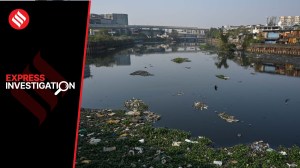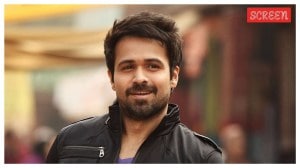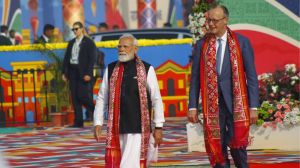MEA needs to learn diplomacy
Our diplomats and officers in the foreign office need some urgent reorientation. Their slow reflexes and typical bureaucratic mindset often ...

Our diplomats and officers in the foreign office need some urgent reorientation. Their slow reflexes and typical bureaucratic mindset often put India8217;s international image at stake. Since October 9, 2000, Iraq has been requesting India for two lion cubs it requires for Baghdad zoo. Saddam Hussein8217;s son Uday has been personally setting up this zoo. Officials in our Ministry of External Affairs sat over the request and finally, after repeated reminders, informed Baghdad that trading in wildlife was prohibited under Indian laws. Iraq, which was earlier ready to pay for the cubs if necessary, appreciated the law and informed New Delhi that Baghdad had no intention to do any kind of business with the cubs, and hoped that India would offer the cubs as a gift.
Till date, no concrete decision has been taken over the proposal. When lions in Indian zoos are being sterilised to check their unmanageable population in captivity, it would not be difficult to oblige Baghdad over such a small request. Trivial as it may appear in nature, such goodwill gestures go a long way in strengthening ties between countries. Decades back, Prime Minister Nehru had taken a baby elephant, named Indira, for the Japanese children. Even today, this small gesture finds warm mention in any speech made by any Japanese leader on Indo-Japan relations.
It is unfortunate that our diplomats let go such soft opportunities to enhance foreign ties. Take the postal fiasco with the United Arab Emirates government, for example. The UAE has a huge Indian population that contributes no less than 5 billion to the national exchequer. The population needs to transport a lot of luggage to and fro, for which they currently depend on an exorbitant air cargo.
India and the UAE signed an MoU to facilitate these people by offering an economic parcel system in 35- and 70-kg boxes. Minister of State for Telecommunications Tapan Sikdar visited the UAE to finalise the deal and it got wide television publicity in Dubai. When everything looked settled, some deputy director general in the Postal Department informed the UAE Government that the scheme had been indefinitely postponed. Understandably, the UAE Government was upset. If our officials don8217;t understand the sensitivity of handling sentiments of another nation, they don8217;t have any business occupying chairs in the Foreign Ministry or deal with bilateral issues.
Sena acquires some new friends
Guess who is Bal Thackeray8217;s new friend in the Vajpayee Cabinet. Don8217;t raise eyebrows if you find Civil Aviation Minister Shahnawaz Hussain visits the Tiger in his den every time he is in Mumbai and the latter welcomes Hussain with generous helpings of biryani specially prepared for him. Balasaheb has been heard taking pride in the fact that Maharashtra witnessed no communal riots during the Sena8217;s five-year tenure and that he controlled the party cadre during the Gujarat carnage, which prevented a spillover of the riots into Mumbai. He is also smug about the fact that the Muslims appreciated Sena government8217;s decision to raise the FSI, which enabled mosques to increase their build-up areas. He also takes credit for facilitating Governor P.C. Alexander8217;s second tenure in the state. If these were not enough, now he is backing Alexander, a Christian, for the top post in the country. If Thackeray has his way, India may soon have the first Christian in the President8217;s office.
Let our fund be, MPs do good too
It is unfortunate that the Constitution Review Panel chaired by former Supreme Court chief justice Venkatachaliya has recommended abolition of the MP Local Area Development Fund Scheme. Even if certain MPs misuse this fund, MPLAD is the only visible scheme going in the country. While 85 per cent of the funds mobilised through government agencies get siphoned out midway, the margin of misuse in MPLAD is not more than 15 per cent. Besides, contrary to popular belief, the MPLAD funds are not doled out to MPs but given to respective district magistrates. While the MPs can only recommend how the money should be spent, the entire expenditure is done by the district administration. True that some MPs do take commission in the process, but those are exceptional cases. If the members of the panel visit rural India, they would be pleased to see how many roads, community centres, schools and dispensaries have been constructed under MPLAD.
- 01
- 02
- 03
- 04
- 05































